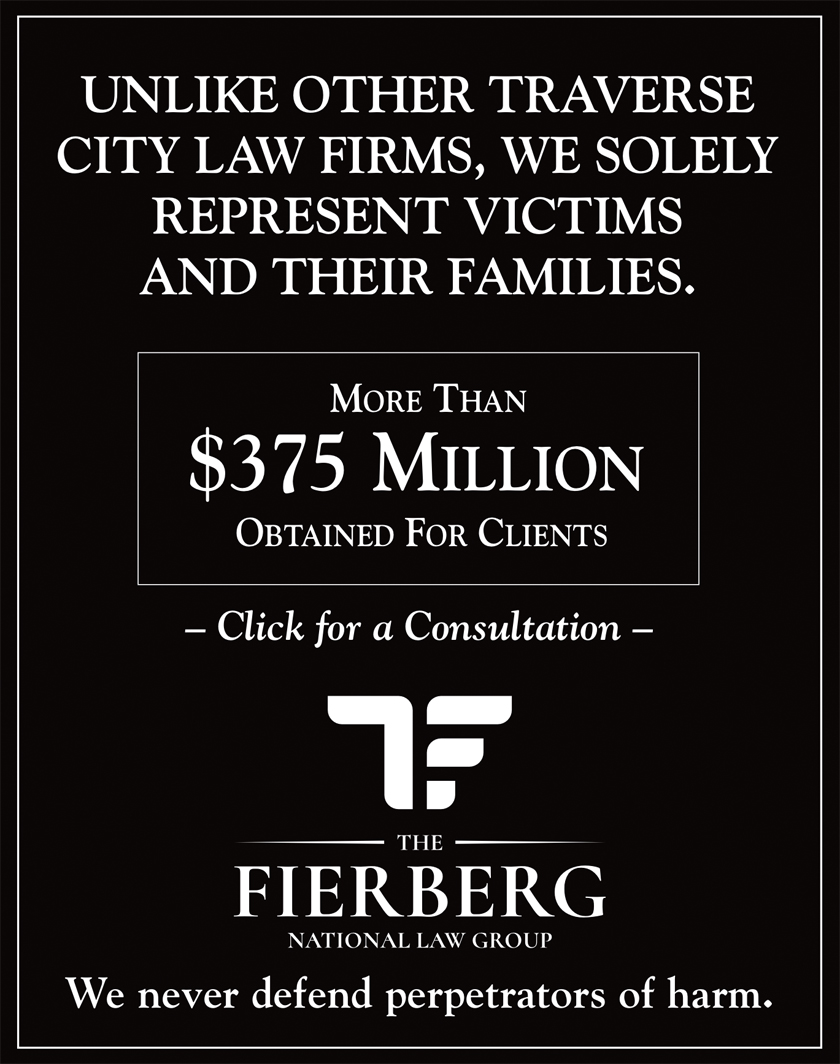
TC Voters To Decide City Manager’s Spending Authority
By Beth Milligan | July 20, 2021
Traverse City voters will be asked to approve raising the city manager’s spending authority this fall under a charter amendment headed to the ballot. City commissioners voted to approve the ballot language at their Monday meeting, where they also updated an agreement with the city’s wastewater treatment plant operator and introduced new rules for platform cafes located in angled parking spaces.
Charter Amendment
City voters will determine whether to raise the city manager’s spending authority this fall – the first such potential increase in 16 years and one intended to stay current with inflation and more closely align with spending policies in other city departments.
Commissioners voted Monday to approve putting language on the November 2 ballot to amend a city charter provision regulating how much the city manager can spend in a single transaction without commission approval. That figure has stayed a flat amount of $9,000 since 2005. The ballot proposal would change the limit from a flat amount to a percentage of the general fund’s budgeted expenses each year: up to one-tenth of one percent, which would equal roughly $19,700 this fiscal year. “It would vary from year to year a little bit, but typically not substantially,” said City Manager Marty Colburn.
The policy is similar to one already in place at the city-owned utility Traverse City Light & Power, where the utility’s executive director can spend an amount equal to one-tenth of one percent of the budgeted expenditures for the year. Safeguards exist to ensure financial accountability even if the city manager’s spending limit is increased, according to staff. Any disbursement of funds from city accounts, regardless of the amount, must also receive approval from the city treasurer and city clerk – employees who can’t be replaced without the vote of five commissioners. Also, even if voters approve the ballot proposal, city commissioners can still decide at any time to decrease the manager’s spending limit below the maximum allowed percentage.
Commissioner Brian McGillivary asked to amend the ballot language Monday to state that commissioners will review and set the manager’s spending limit each year as part of the annual budget process. Other commissioners agreed to the change, noting that such an approach was a more proactive way to ensure the board was reviewing and committing to the spending limit each year.
Also at Monday’s meeting…
> Commissioners approved an updated agreement with Jacobs (formerly OMI/CH2M), the firm that has operated the city’s wastewater treatment plant for 32 years. The new contract terms increase the firm’s base fee to $2.8 million, a 1.6 percent increase. Commissioners also agreed to pay a one-time extra fee of $75,374 to cover electricity and ferric chloride overage costs incurred by Jacobs. Director of Municipal Utilities Art Krueger noted in a memo to commissioners that Jacobs has been dealing with increased flow rates at the plant over the last two years due to record lake levels, high groundwater, and influx and infiltration issues plaguing city pipes.
> Commissioners introduced and scheduled for an August 2 enactment changes to the city’s platform café ordinance, which allows city businesses to erect outdoor seating in parking spaces in front of their property through a permit and fee process. Businesses normally do so within parallel parking spots, but some property owners on Lake Avenue – which has angled parking – have also expressed interest in having platform cafés. The proposed ordinance changes would allow business owners to use up to four parking spaces instead of the normal two for a platform café if it’s on an angled parking street, as the alignment of those spaces makes it challenging to fit seating on only two spaces. Owners must pay a daily rate for each parking spot they use, and if more than 50 percent of the spaces are in front of a neighboring business, the owner must obtain the permission of that neighboring business to install the platform café.
> Commissioners tweaked their rules for using ad hoc committees to interview candidates for city boards, a policy that was recently majorly overhauled to move from a mayoral appointment process to one that uses a randomly selected ad hoc of three commissioners to interview candidates and recommend appointments to the entire commission. Tweaks made Monday will ensure a more equitable process for selecting ad hoc committee members in case some commissioners get chosen more than others during random selection. The changes also establish a default that all applicants for a board must be interviewed in order to be considered for an appointment – unless the applicant has already been interviewed for that board in the last year, in which case the ad hoc committee can forego another interview and recommend the applicant for appointment.
> A new liquor license application from Millie & Pepper Creperie on Union Street was pulled from the agenda Monday at the request of the applicant. The request could return in the future if the business owners decide to move forward with the application. Commissioners Monday approved a liquor license transfer from the former owner of Little Bohemia on West Front Street to the new owners of the restaurant, renamed Lil Bo. While new liquor license requests have often generated debate at the city commission due to a Healthier Drinking Culture study underway, license transfers between a former and new owner on the same property have typically been approved without fanfare since such requests aren’t changing the overall number of licenses operating in the city.
Comment






